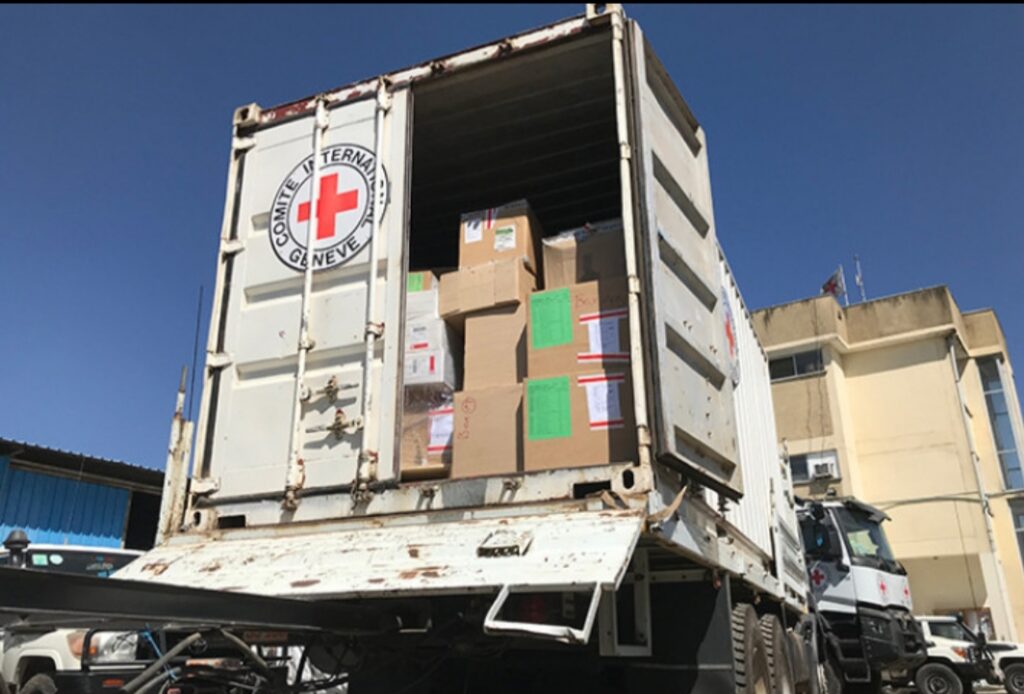Addis Ababa / Geneva (ICRC) – A convoy carrying medicines and relief supplies from the International Committee of the Red Cross (ICRC) and the Ethiopian Red Cross Society (ERCS), organized in coordination with the Ethiopian authorities, has reached the Tigray State capital, Mekelle.
Health care facilities there have become paralyzed after supplies of drugs and basics like surgical gloves ran out. It is the first international aid to arrive in Mekelle since fighting erupted in Tigray more than one month ago.
Ayder Hospital shuttered its intensive care unit and surgical theatre due to the lack of medical supplies and fuel to run the generator, which the units depend on for electricity. In late November, the hospital received an influx of people wounded in fighting. It has also struggled to provide care for chronic and routine medical needs, including diabetes, dialysis, and maternity and delivery services. It is the main referral hospital for Mekelle’s 500,000 people.
“Doctors and nurses have been forced to make impossible choices of which services to continue, and which services to cut, after going weeks without new supplies, running water, and electricity,” said Patrick Youssef, International Committee of the Red Cross’ (ICRC) regional director for Africa, following a visit to Addis Ababa. “This medical shipment will inject new stocks, help patients, and reduce those impossible life-or-death triage decisions.”
The seven Red Cross trucks are carrying medicines and supplies to care for more than 400 trauma patients as well as items needed to treat chronic and routine medical conditions. These supplies will be donated to Ayder Hospital, the Regional Health Bureau, and the ERCS pharmacy in Mekelle. In addition, ICRC’s team in Mekelle has been working to get the hospital fuel to run its generator as well as water.
The Federal Ministry of Health also delivered medical supplies to Mekelle’s health facilities today.
“The supplies will make an immediate and lifesaving difference to the people who today are going without access to medical care,” said Youssef. “We expect that many health care facilities in Tigray are facing the same challenges as Ayder Hospital and urgently need support.”
The Red Cross convoy also brought blankets, tarpaulins, kitchen sets, clothes, soap, and jerrycans that can help about 1,000 families forced from their homes by the fighting as well as equipment to improve access to water and sanitation.
At the same time, ICRC teams are in North Amhara and West Tigray, where they are distributing relief items to displaced families and assessing the humanitarian needs caused by the fighting. The ICRC has so far provided medicines and medical supplies to seven health care facilities in Amhara that have received patients injured in fighting. In addition to medical supplies, the ICRC is working with hospitals to support the long-term physical rehabilitation needs of people who suffered amputations because of weapon-related injuries.
The ICRC counts on the financial support of the international community to deliver humanitarian assistance in Ethiopia. The ICRC has an overall budget of CHF 27 million in Ethiopia, of which CHF 10 million has not been funded.
#ICRC




